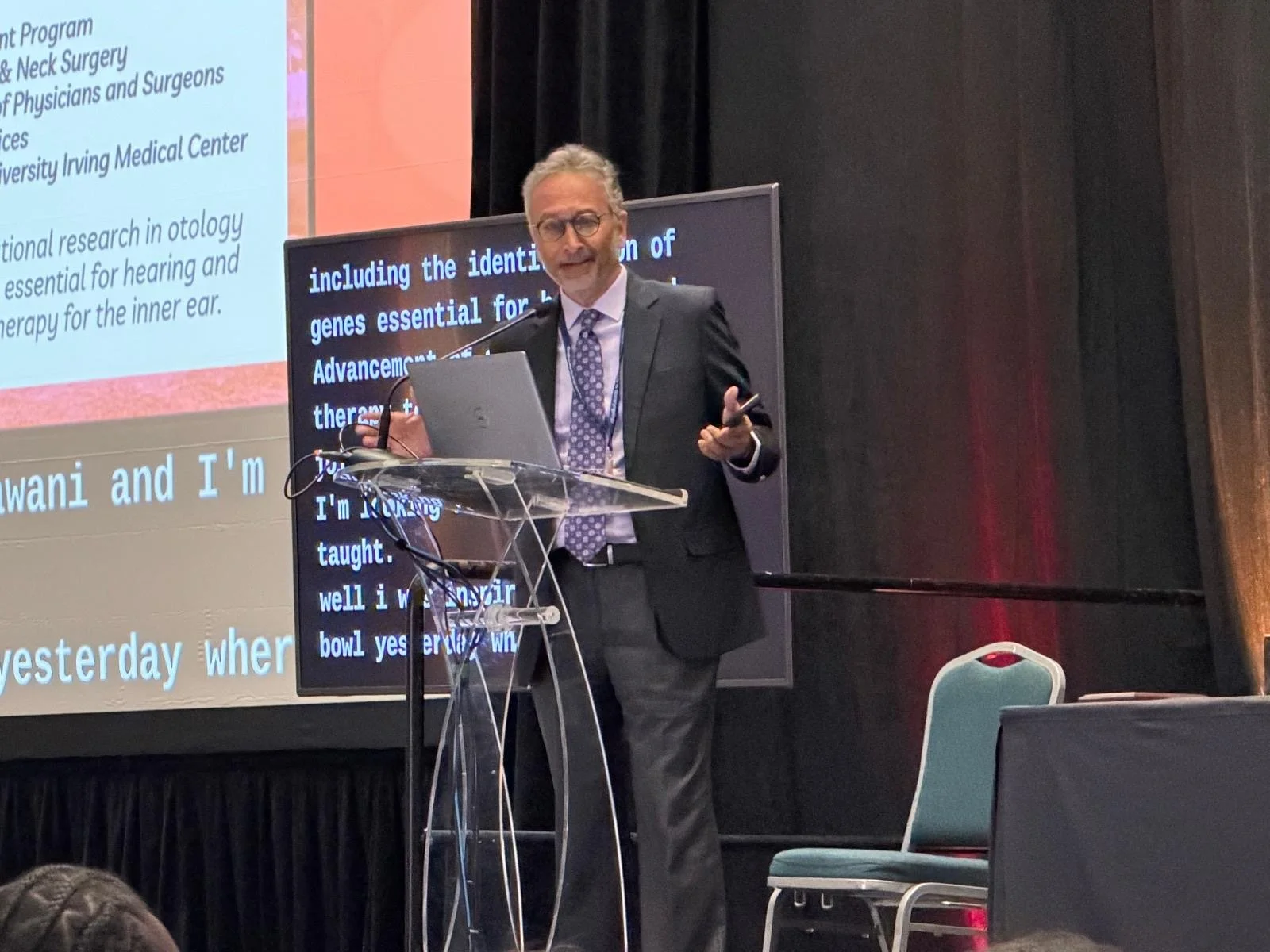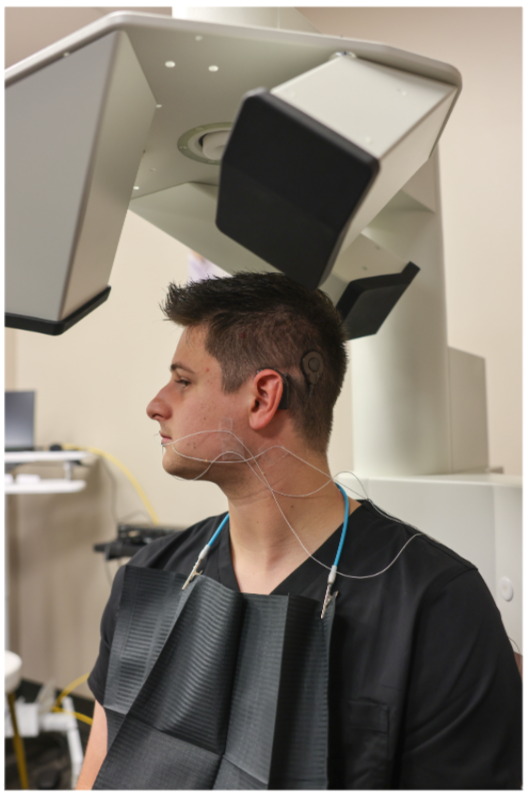A well-known imaging test that radiologists use to monitor blood flow from the heart may soon be deployed to pinpoint what part of the ear is experiencing age-related hearing loss.
Robert Frisina, Ph.D., a distinguished university professor and the chair of the University of South Florida (USF) department of medical engineering, is working with Moffitt Cancer Center to develop cutting-edge imaging that more accurately identifies problem areas.
201TI (thallium) is the mild radioactive tracer that’s used to help the cochlea communicate with an image processor to determine the magnitude of “cochlear battery”-related hearing loss. Credit: USF
His team is focusing on the cochlea, a hollow, spiral-shaped, fluid filled cavity in the temporal bone—also called the inner ear—that has a “biological battery” needed for transmitting sound vibration information to the brain. Over time, the battery deteriorates, and it has been nearly impossible to clinically determine why.
“Diagnosing how healthy this biological battery is in patients is not yet possible. Our innovative imaging approach may make this doable in the near future for otolaryngologists and audiologists,” Frisina says.
The research team is using medical imaging involving the use of a tracer—a small amount of radioactive material that will allow radiologists to see what’s occurring inside the ear. It’s administered through an IV and is commonly used during positron emission tomography (PET) scans.
By differentiating the functionality of different parts of the cochlea, physicians can prescribe medication that will treat that specific area as a future option other than taking the blanketed approach of prescribing hearing aids.
Frisina is now fine-tuning the procedure with an R1 research grant from the National Institutes of Health, one of the most prestigious forms of federal biomedical funding. He hopes that by combining biomedical engineering and imaging with hearing sciences, his team will begin clinical trials at the conclusion of the two-year grant period—ultimately achieving this translational breakthrough for individuals experiencing hearing loss.
This study is in addition to an ongoing $9 million grant awarded to Frisina’s team by the National Institutes of Health to better understand the causes of age-related hearing loss and develop a medication to treat it. He and his group patented a new medication in 2019 and are currently seeking to work with a pharmaceutical company toward FDA approval. —University of South Florida
Robert Frisina, Ph.D., is a 1987 Emerging Research Grants scientist. This originally appeared on the University of South Florida website. Frisina wrote about his research, with his late father D. Robert Frisina, Ph.D., in the Summer 2017 issue of Hearing Health magazine.








Our new public service announcement “Let’s Listen Smart” recognizes that life is loud—and it’s also fun. And the last thing we want to do is stop having fun! We just need to listen responsibly.